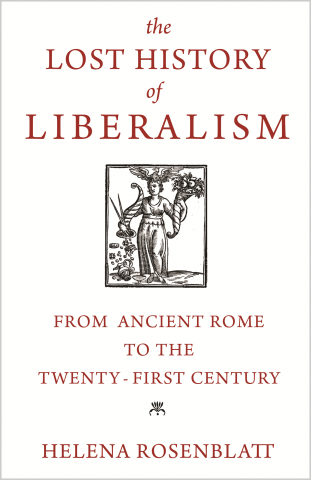Liberalism Is Failing Because It Rejected Orthodox Christianity
 by Kevin E Stuart, Public Discourse:
by Kevin E Stuart, Public Discourse:
Helena Rosenblatt’s The Lost History of Liberalism correctly identifies liberalism’s need for moral virtue, but does not draw the further conclusion that her book suggests: liberalism is failing because it has rejected orthodox Christianity.
Every parent knows the ominous feeling of watching one’s child transform a mere mistake into a full-blown disaster.
A similar sense of gloom hovers over Helena Rosenblatt’s recent book, The Lost History of Liberalism. Rosenblatt presents her work as a history of those who have called themselves liberal through the centuries. More accurately described, however, it is her attempt to redefine liberalism’s founding in order to rescue it from the worrisome future toward which it seems to be headed. Liberalism was founded on commitments to duty, patriotism, self-sacrifice, and the other virtues that guide humanity’s use of freedom, she notes. But contemporary liberals are trading their birthright for an untenable pottage of rights talk and anarchic freedom that lacks solid grounding.
Rosenblatt foresees disaster at the end of that path, and her book is a call from within the liberal tradition to turn back. That alone is worth a cheer.
Several books have been published lately about the history and current state of liberal modernity. But how does one make sense of a term—“liberal”—so amorphous that it can describe figures as different as Adam Smith, Woodrow Wilson, and Nancy Pelosi? Rosenblatt defines the word “liberal” more precisely by tracing its career: from the earliest moral uses in classical texts; to its political-economic turn in post-revolutionary France, Spain, and Germany; and then finally to its contemporary meaning in the United States and the United Kingdom.
Rosenblatt is to be commended for taking seriously the different ways the word liberal has been used. Still, such an exercise is of limited value. It necessarily overlooks ideas, people, and movements that are philosophically related to liberalism if they happened not to describe themselves or their beliefs as “liberal.” For example, John Locke did not identify as a “liberal” in the political sense of the word. But he defended religious tolerance, which is a hallmark of political liberalism. It is a mistake to exclude Locke from a history of liberalism simply because he did not use the term.





